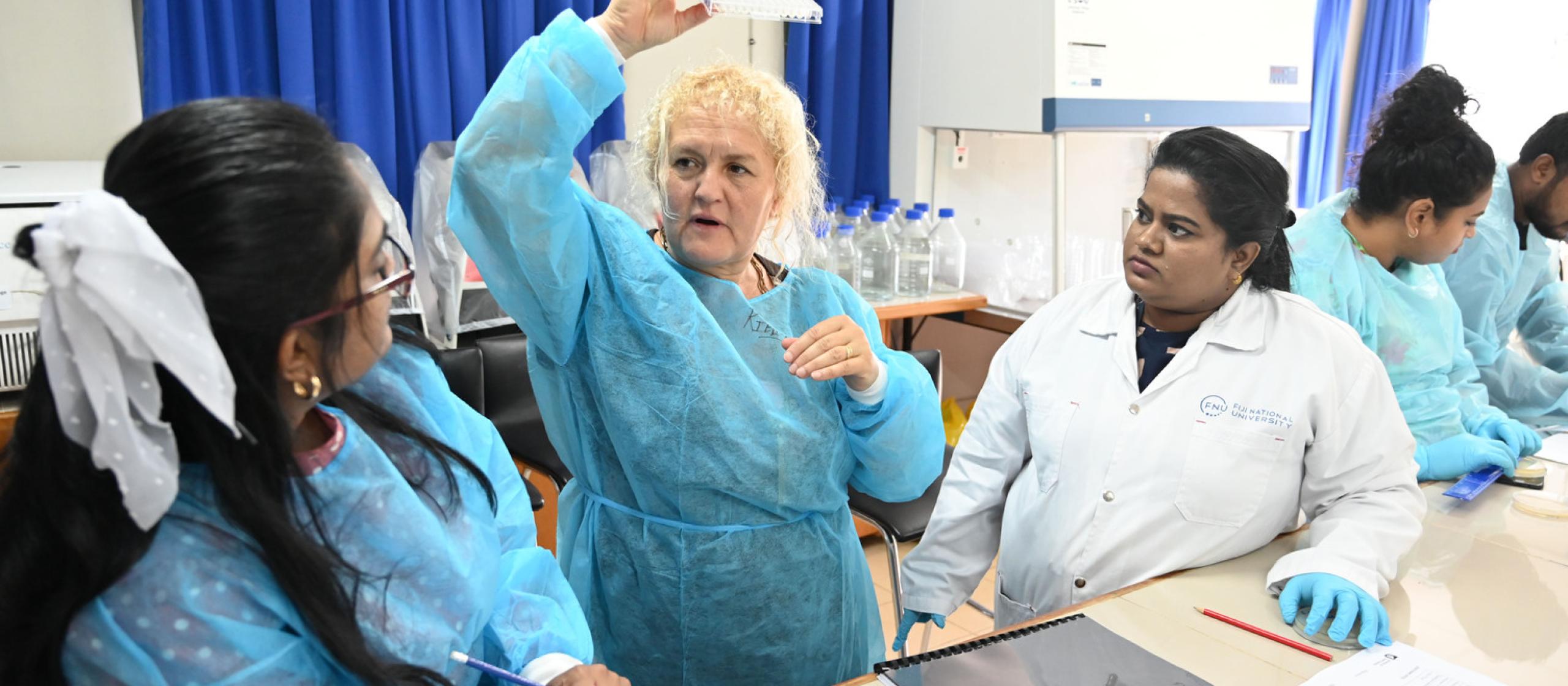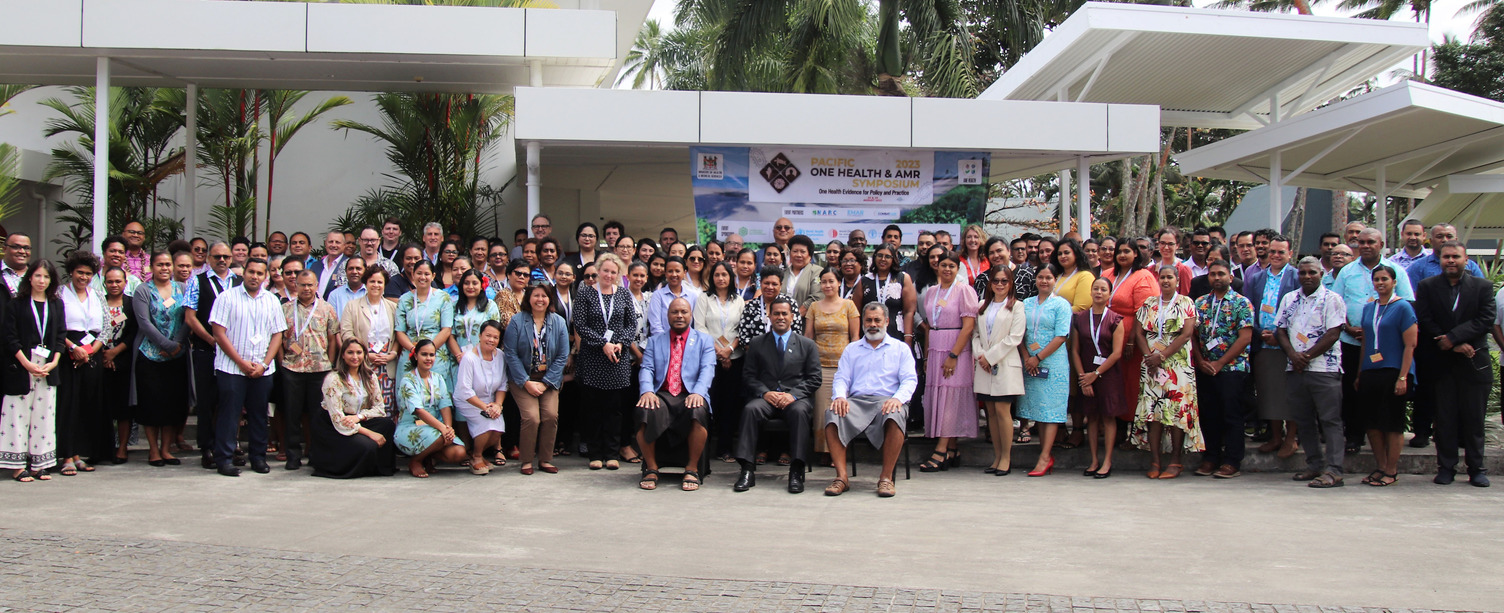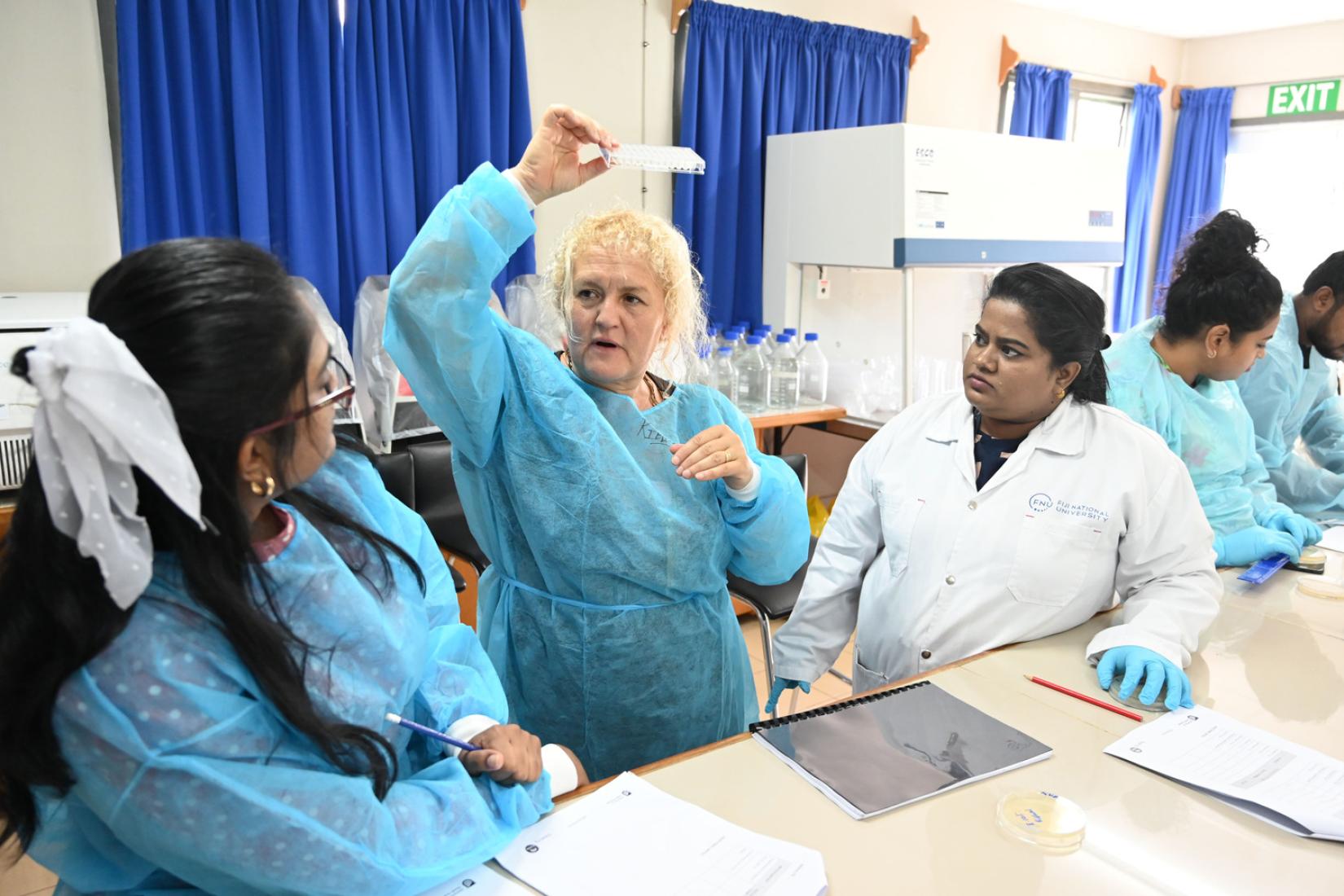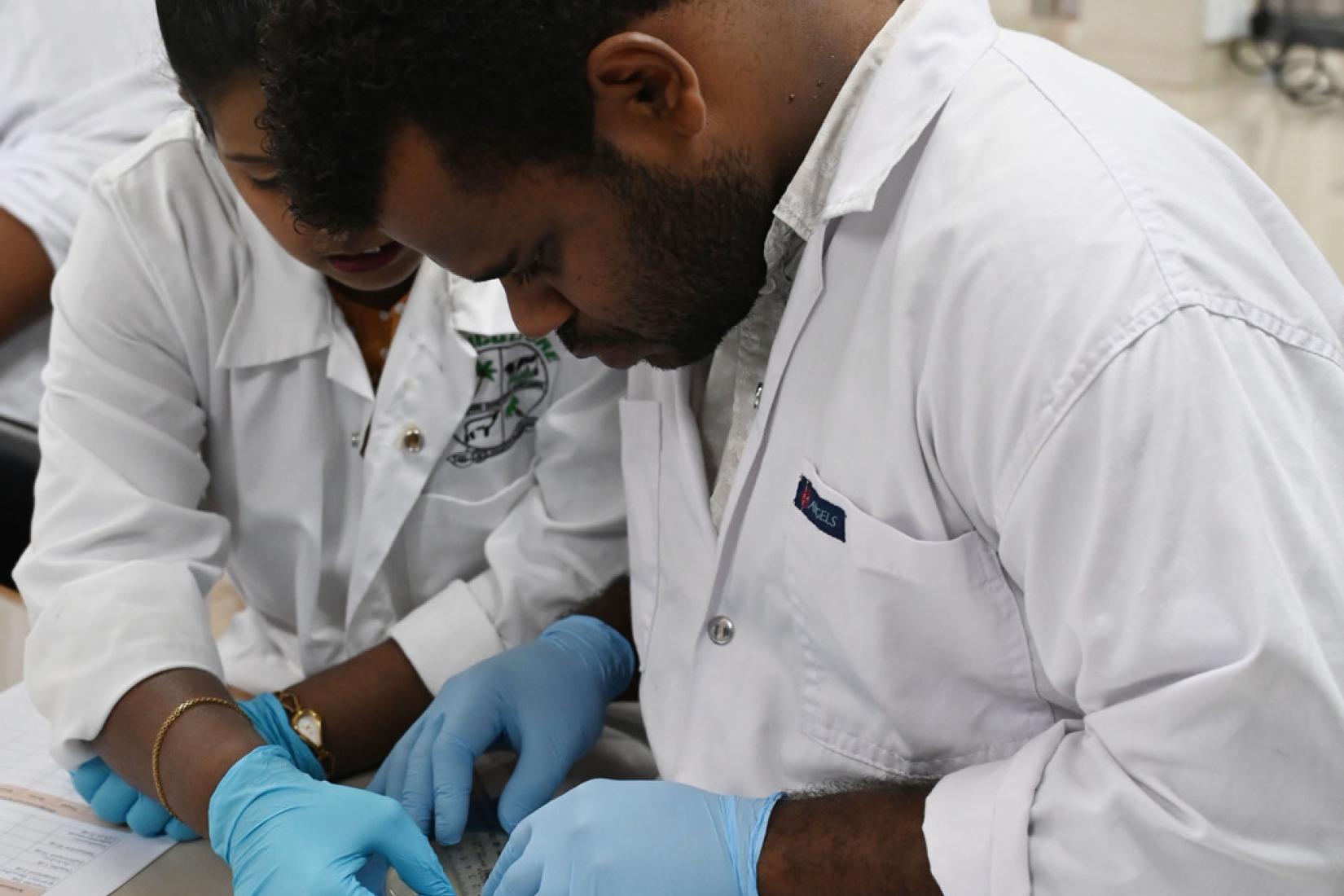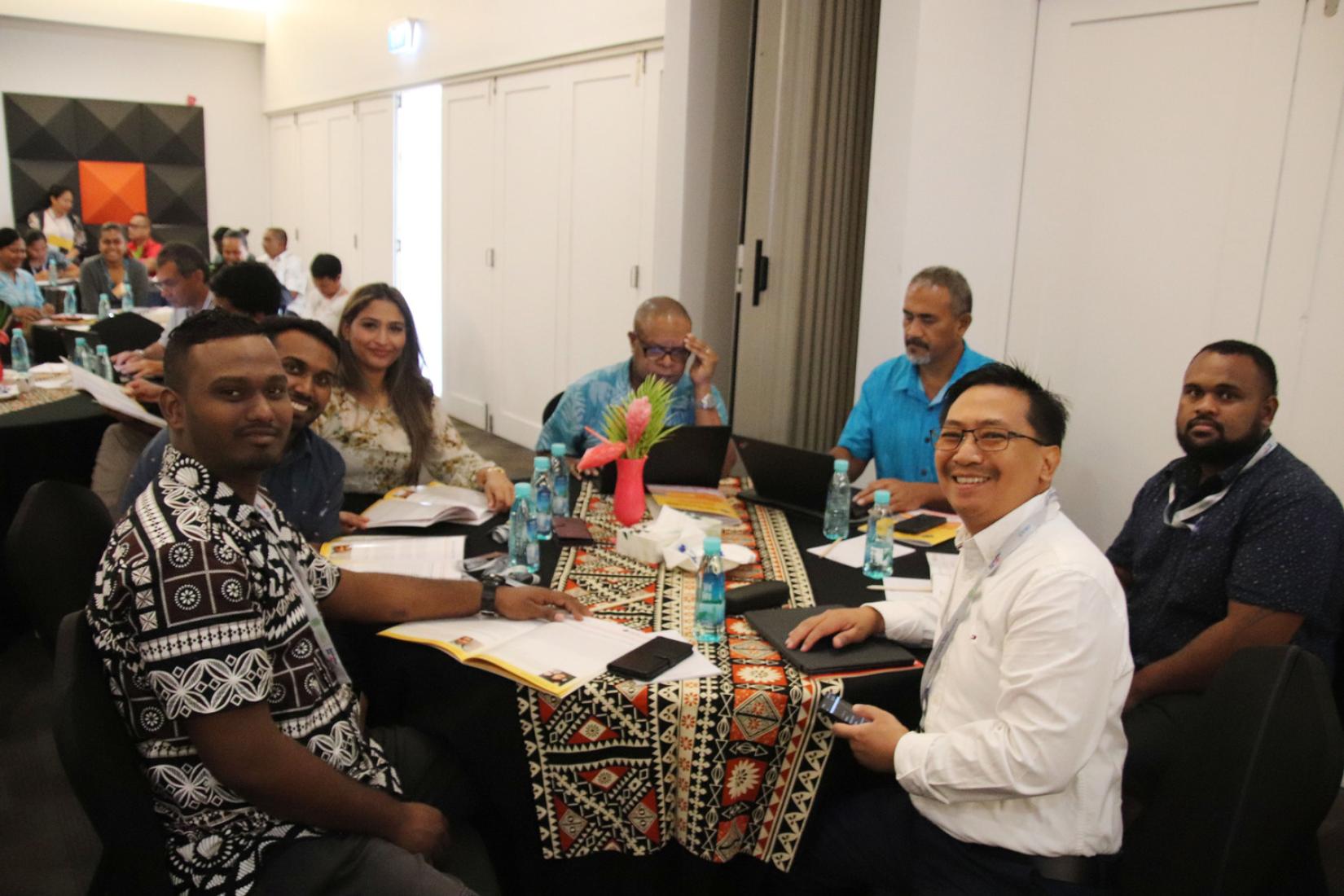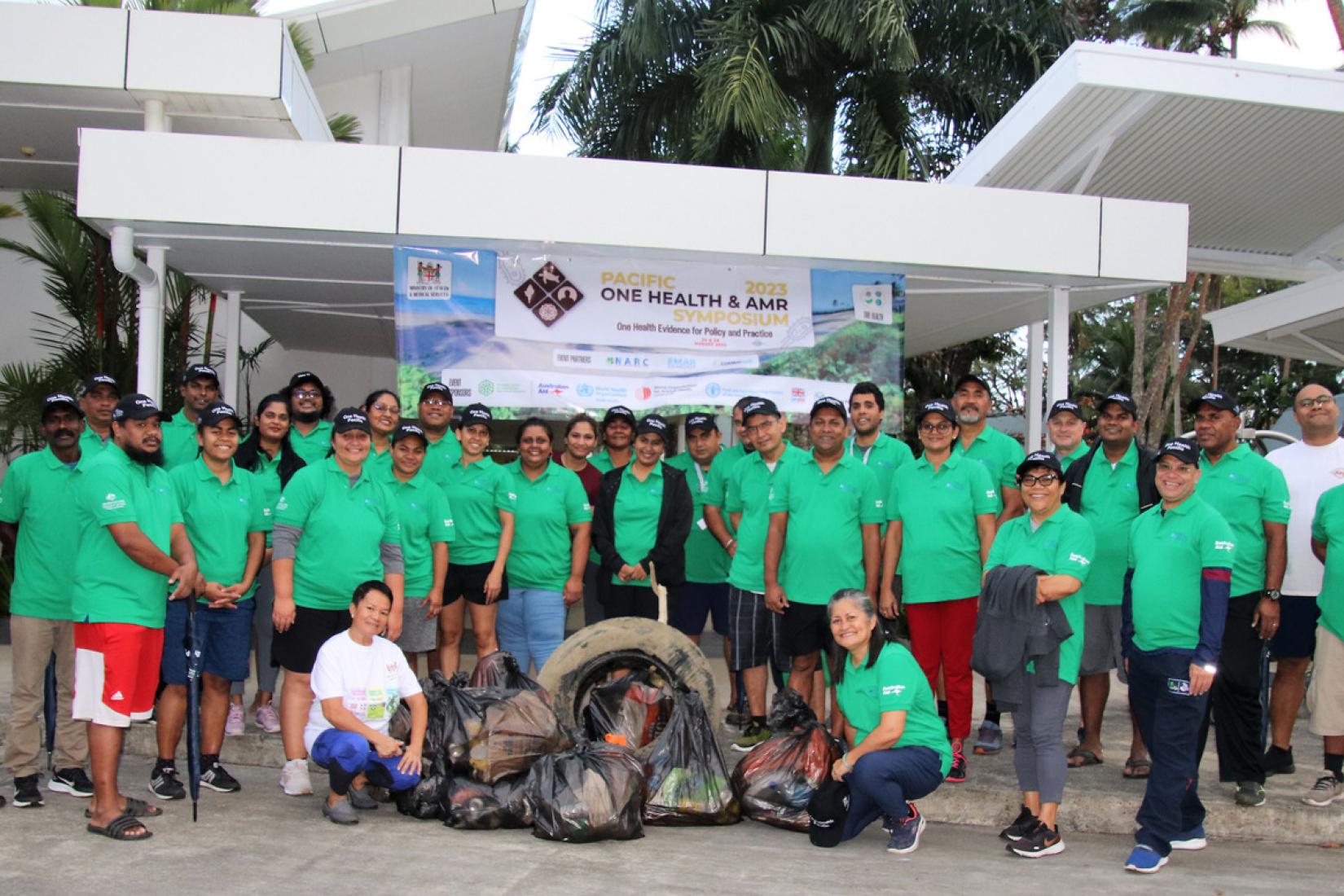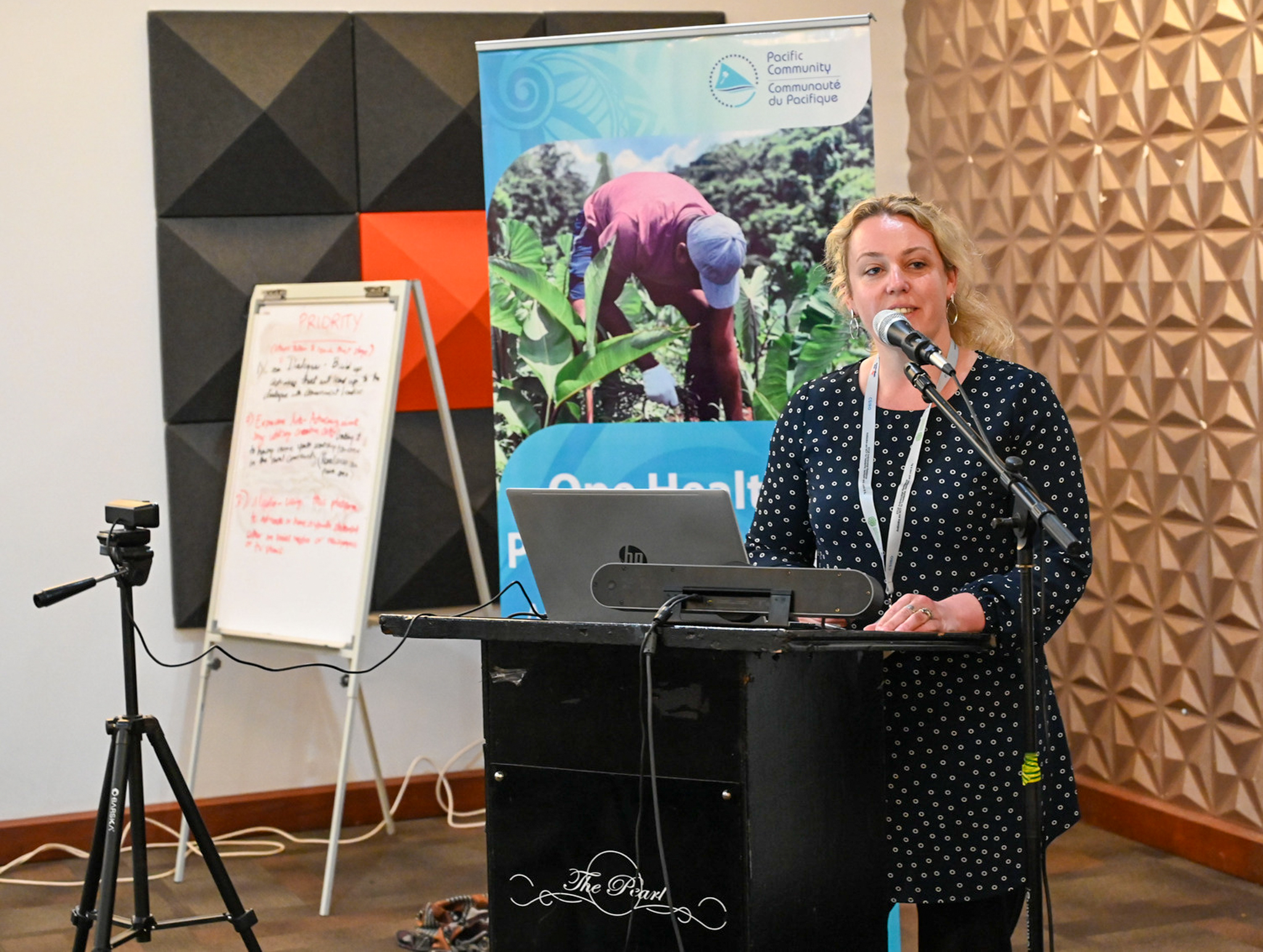The Pacific region marked a significant milestone in managing the threat of ‘superbugs’ as the inaugural Pacific One Health and Antimicrobial Resistance (AMR) Symposium kicked off in Fiji last month.
The symposium is a major milestone of a jointly funded ACIAR and Department of Foreign Affairs (DFAT) 5-year project aiming to improve policies around antimicrobial resistance and stewardship at local, national and regional levels.
With over 150 participants from Australia, Fiji, New Zealand, Papua New Guinea, Samoa and Solomon Islands, the 2-day symposium has enabled regional stakeholders to get together for the first time to share and learn about the unique challenges of AMR across the region.
Findings from the symposium will enable Pacific leaders to strengthen collaborative, multi-sectoral and transdisciplinary approach to health security.
Led by CSIRO, Australia’s national science agency, the project has previously supported research to improve the management of AMR in Fiji, leading to the launch of the country's renewed National Action Plan 2022-2025 (NAP) on AMR in February 2023.
The NAP is a national policy that guides the project on the key strategic areas to be considered when collaborating with the Government of Fiji and other stakeholders to manage AMR sustainably.
Project leader and CSIRO researcher Dr Walter Okelo explained that AMR is one of the greatest threats facing human and animal health today.
‘Pathogens such as bacteria, viruses, fungi, and parasites are acquiring and developing increased resistance to the drugs designed to kill them and left unchecked, this could result in the evolution of ‘superbugs’ that do not respond to standard treatments and can cause infections that cannot be treated or contained’, said Dr Okelo.
